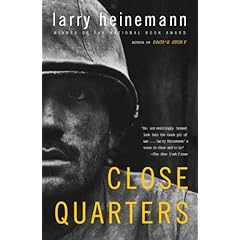 The Dogs of Babel
The Dogs of BabelThe back cover reads:
This exuberantly praised bestseller - one of the year's most admired and enjoyed fiction debuts - tells the story of a man's quest to solve the mystery of his wife's death with the help of the only witness: their dog, Lorelei. Written with a quiet elegance and a profound knowledge of love's hidden places, The Dogs of Babel is a work of astonishing and lasting power - a story of marraige, survival and devotion that lies too deep for words.
This novel is one that I bought in the US last year. In fact, the last four books that I read, excluding the most recent, were books purchased last year in the US. Evidently I'm subconsciously clearing the shelves for the new books I will buy during my visit early next year.
This is a charming story, dark in places, beautiful in others, odd and disturbing when Paul's obsession with teaching his dog to talk leads him to a small group of people who believe that surgically altering the profiles of dog's jaws will give them the ability to speak.
Paul is a grieving husband, obsessed with finding out the truth of his wife's death. She fell from a tree in their backyard and the dog was the only witness. What was she doing up there? Why did she fall? Why did she cook the dog a steak before climbing the tree, and why did she rearrange their entire collection of books before she died?
Lexy left her husband a myriad of clues and he unravels them as he recalls his marraige, the highs and lows, the special things they did together and Lexy's sometimes unusual behaviour that didn't make him love her even less, but served as clues to her eventual demise.
I understand why this book made the best-seller's list, why it's a book-club book, and why it has such high praise and quality reviews. It is a quality novel that crosses genres. It has mystery and romance, it's not too long and it's not too challenging. It deals with complex issues in a manner that is accessible and not overly maudlin. It gives the reader an experience of mental illness from the outside, and it gives the reader a fluffy, light ending which readers can feel good about.
It's no wonder this is a book-club favourite and a best-seller, it packages up the nasty stuff and makes it palatable for the masses. Unfortunately I'm not one of the masses.
Paul's obsession to teach Lorelei to talk was endearing if not a little disturbing, and his embroilment with the crazy dog mutilators gave the story an aspect of danger and served to illustrate to the protagonist the error of his own ways. These are nice techniques, but they felt orchestrated rather than organic. I'd have preferred to see Paul work out for himself that the dog talking thing was flawed, which would have been much harder to pull off for the writer but inherently more rewarding for the reader.
Lexy's creativity worked well with the story and her painting of masks, especially the death masks, fed toward the eventual reveal, but the choice of making her a gifted artist is subtexturally stereotypical.
From the beginning this book didn't quite gel. The structure is mature and the pacing, though a little slow, kept me interested but the sadness is perfunctory and the writing lacked honesty. As for the whole handling of mental illness and suicide... this book sends completely the wrong message.
Readers of romance novels will enjoy this, but anyone who is seeking to understand the human condition won't get much out of it at all.
Rating: ** out of five.




